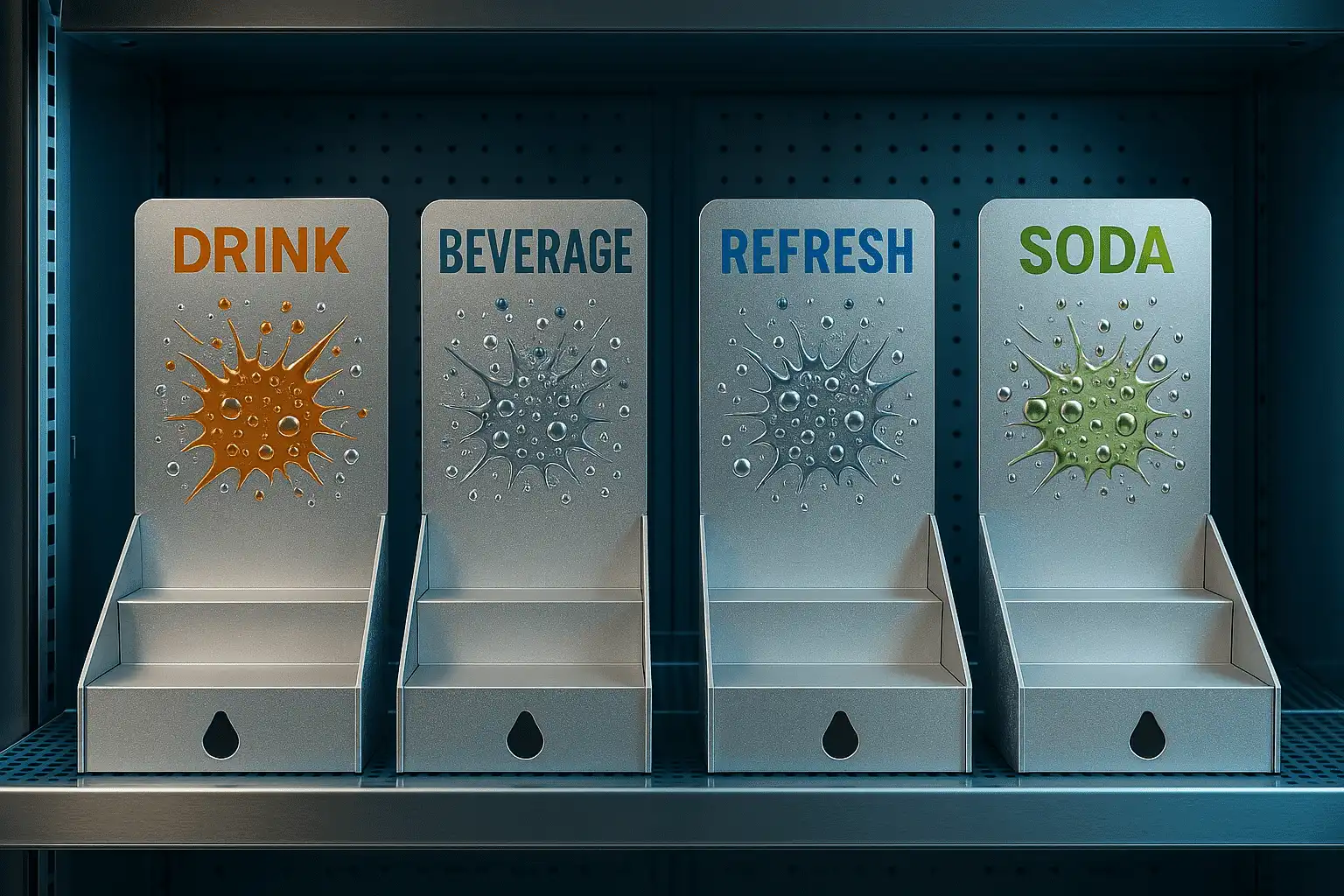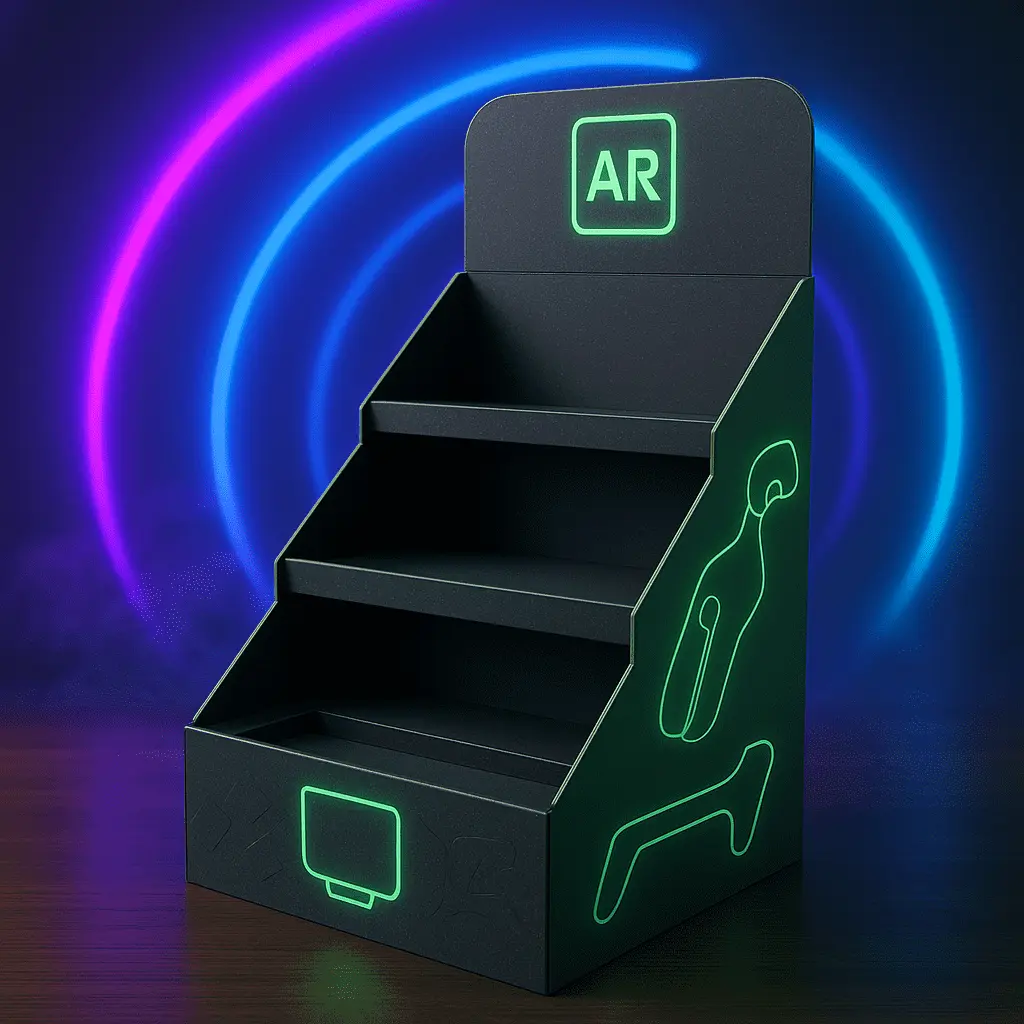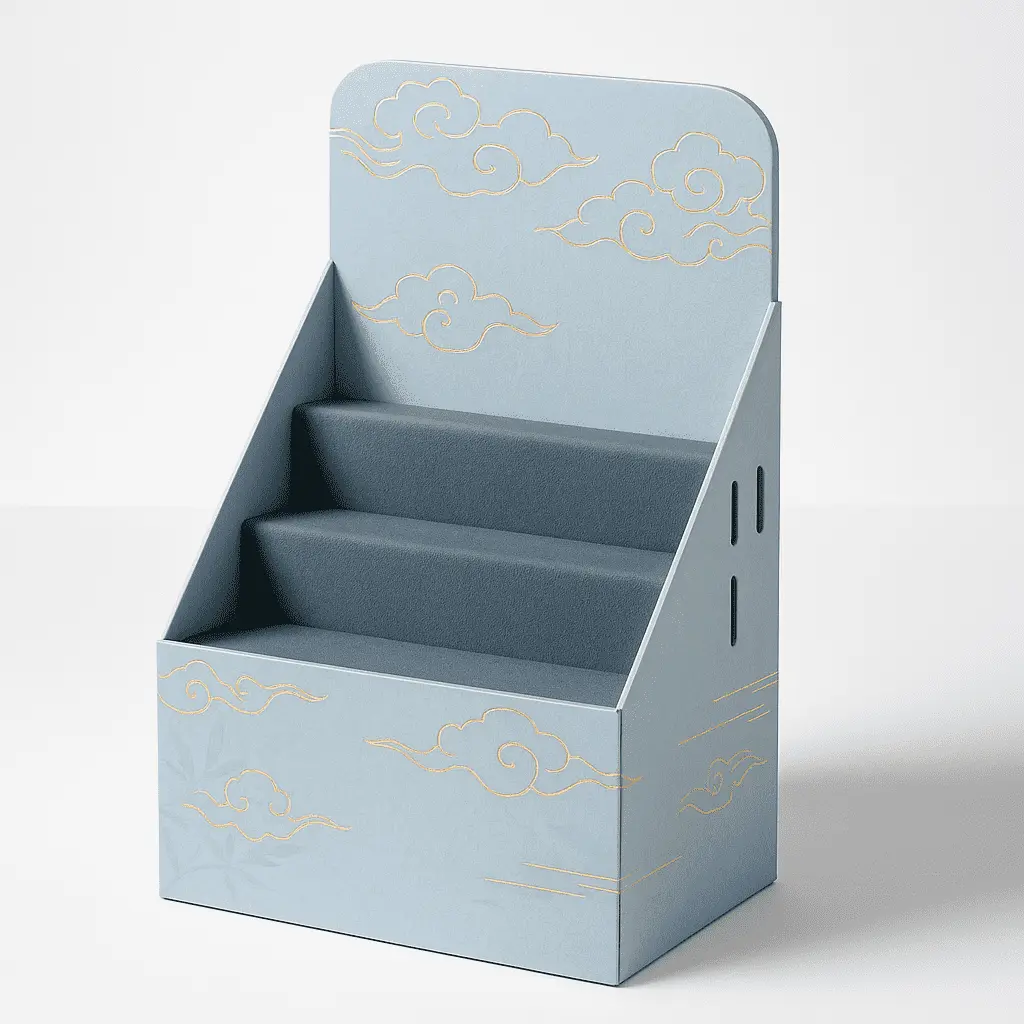Understanding PDQ Displays: A Game-Changer in Retail Marketing
What Are PDQ Displays and How Do They Work?
PDQ displays, short for "Pretty Darn Quick," are innovative retail packaging solutions designed for swift and effortless product setup. These displays are pre-filled with merchandise and arrive ready to be placed directly on store shelves or floors. The genius of PDQ boxes lies in their dual functionality – they serve as both shipping containers and eye-catching retail displays.
Typically crafted from durable corrugated cardboard, PDQ displays feature perforated sections that can be easily removed to reveal the products inside. This design allows for quick deployment in retail environments, saving time and labor costs associated with traditional product stocking methods. The structure of PDQ boxes is carefully engineered to maximize product visibility while ensuring stability and protection during transit.
The Psychology Behind Effective PDQ Display Design
The success of PDQ displays is deeply rooted in consumer psychology. These displays leverage several key psychological principles to influence purchasing decisions:
- Visual Appeal: Bright colors, attractive graphics, and well-organized product arrangements catch the eye and draw customers in.
- Convenience: By placing products within easy reach, PDQ displays reduce the effort required to make a purchase, tapping into the human desire for convenience.
- Impulse Buying: Strategic placement in high-traffic areas triggers spontaneous purchases, capitalizing on customers' in-the-moment desires.
- Social Proof: When multiple customers interact with a PDQ display, it creates a sense of popularity and desirability for the featured products.
Types of PDQ Displays for Various Retail Environments
PDQ displays come in various forms to suit different retail settings and product types:
- Counter Displays: Ideal for small items like candy, cosmetics, or accessories, these compact displays fit perfectly at checkout counters.
- Floor Displays: Larger, free-standing units suitable for heavier or bulkier items, often used for seasonal promotions or new product launches.
- Shelf Displays: Designed to integrate seamlessly with existing store shelving, these displays maximize product visibility without disrupting store layout.
- Endcap Displays: Positioned at the end of aisles, these high-visibility displays are perfect for showcasing featured or promotional items.
Maximizing Sales Impact: Strategies for Effective PDQ Display Implementation
Optimal Placement: Location Matters
The effectiveness of PDQ displays hinges significantly on their placement within the retail environment. Strategic positioning can dramatically increase product visibility and drive sales. High-traffic areas such as near entrances, checkout counters, or along main aisles are prime locations for PDQ displays. These spots capitalize on customer flow and maximize exposure.
Consider the customer journey through your store. Placing PDQ displays at natural pause points or decision-making areas can encourage impulse purchases. For instance, positioning complementary products near primary items can boost cross-selling opportunities. A display of phone accessories near the electronics section or snack displays near the beverage aisle can significantly increase average transaction value.
Design Elements That Drive Conversions
The visual appeal of PDQ displays plays a crucial role in attracting customer attention and driving sales. Effective design elements include:
- Clear Branding: Ensure your brand is prominently displayed to reinforce brand recognition and trust.
- Engaging Graphics: Use high-quality images and graphics that resonate with your target audience and effectively communicate product benefits.
- Color Psychology: Utilize colors that evoke the right emotions and align with your brand identity. For example, red can create a sense of urgency, while blue can convey trust and reliability.
- Product Visibility: Design the display to showcase products clearly, making it easy for customers to see and select items.
- Informative Content: Include concise, compelling product information or promotional messaging to educate and persuade customers.
Seasonal and Promotional Strategies
Leveraging PDQ displays for seasonal promotions and special events can significantly boost sales. Here are some strategies to consider:
- Holiday Themes: Create themed displays that align with major holidays or seasons, encouraging festive purchases.
- Limited-Time Offers: Use PDQ displays to highlight time-sensitive promotions, creating a sense of urgency.
- New Product Launches: Introduce new items with eye-catching displays to generate buzz and encourage trial purchases.
- Bundle Deals: Showcase complementary products together in a PDQ display to increase average order value.
- Clearance Sales: Utilize PDQ displays to efficiently move clearance or end-of-season items.
Measuring Success: Analytics and Optimization for PDQ Display Performance
Key Performance Indicators for PDQ Display Effectiveness
To truly understand the impact of PDQ displays on your retail sales, it's crucial to track and analyze specific key performance indicators (KPIs). These metrics provide valuable insights into the effectiveness of your display strategy and help identify areas for improvement:
- Sales Lift: Compare sales of products featured in PDQ displays against their baseline sales when not displayed prominently.
- Conversion Rate: Measure the percentage of customers who purchase items from the product compared to total store traffic.
- Sell-Through Rate: Track how quickly products in the PDQ display are sold, indicating the display's effectiveness in moving inventory.
- Average Transaction Value: Analyze whether the presence of PDQ displays increases the average amount spent per customer visit.
- Return on Investment (ROI): Calculate the revenue generated from PDQ displays against the cost of implementing them.
Leveraging Technology for Display Analytics
Modern retail technology offers powerful tools to gather and analyze data on PDQ display performance:
- Foot Traffic Analysis: Use sensors or video analytics to measure customer engagement with displays, including dwell time and interaction rates.
- Point of Sale (POS) Integration: Link sales data directly to specific displays to track performance in real-time.
- Heat Mapping: Employ thermal imaging or video analysis to create visual representations of customer movement and interaction with displays.
- Customer Feedback Systems: Implement QR codes or NFC tags on displays to gather instant customer feedback on products or display effectiveness.
Continuous Improvement: A/B Testing and Iteration
To maximize the effectiveness of your products, adopt a culture of continuous improvement through systematic testing and iteration:
- A/B Testing: Compare different display designs, placements, or product combinations to identify the most effective strategies.
- Seasonal Adjustments: Regularly update displays to reflect changing seasons, trends, or consumer preferences.
- Customer Behavior Analysis: Use insights from analytics to refine display strategies based on observed customer behaviors and preferences.
- Feedback Loop: Establish a system for store staff to provide input on display performance and customer reactions.
- Competitive Benchmarking: Regularly assess and learn from successful PDQ display strategies employed by competitors or industry leaders.
Conclusion
PDQ display boxes are undeniably powerful tools for boosting retail sales when implemented strategically. By understanding their psychology, optimizing placement and design, and continuously measuring and improving their performance, retailers can significantly enhance customer engagement and drive revenue growth. The key lies in viewing PDQ displays not just as product holders, but as dynamic marketing assets that can adapt to changing consumer behaviors and market trends. With the right approach, these versatile displays can become a cornerstone of your retail marketing strategy, offering a cost-effective way to increase sales and improve the overall shopping experience.
Contact Us
Ready to revolutionize your retail strategy with custom PDQ displays? Contact our expert team at Guangzhou Huadu Fetching Color Printing and Packaging Co., Ltd. for tailored solutions that will boost your sales and enhance your brand presence. Reach out to us today at support@fetchingprinting.com to discuss how we can create the perfect PDQ display for your products.





